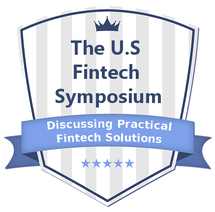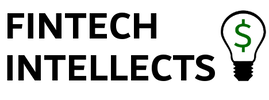|
(Listed below is an edited transcript of Brian Barnes' conversation with Dan Carmody)
Dan Carmody: Hello Everyone. My name is Dan Carmody and I'm the Executive Director of TreaSolution, and in this episode of FinTech Intellects In-Depth Conversations, I'm really pleased to have Brian Barnes, who is the founder and CEO of a great app, M1 Finance, join us today. So thank you, Brian, for joining us. Brian Barnes: Thanks for having me. Dan Carmody: Brian, tell me a little bit more about M1 finance and what you do for the company. Brian Barnes: So what I do is I was the founder and CEO, so, you know, probably more influential earlier on and now I just ask other people to do things. But M1 finance is a personal finance platform. We offer three main products. The first one is M1 Invests that is free automated investing in a custom stock or ETF portfolio. We have M1 Borrow which is a portfolio line of credit where you can borrow against your M1 Invest portfolio at rates as low as two percent. Then we have M1 Spend which is a high yield checking account... a checking account that gives you one percent interest on checking one percent cash back on an M1 debit card. And it moves into this comprehensive platform where you can replace your checking account, sweet money into a custom portfolio of the investments you want for free and borrow at one of the lowest interest rates on the market. Dan Carmody: That's amazing, it seems like an all encompassing financial solution. Is that what you intended to build when you when you first started M1 Finance? Brian Barnes: Yes. We do call it the finance super app. In some sense we are trying to manage all of the customers, or users, finance on one digital platform as opposed to putting together a bunch of point solutions here and there. I would say the genesis for M1 was more on the Invest side and it very quickly morphed into this all encompassing solution where... The user wants to manage their money. They don't want to just manage a component of it. And so we really want to give the platform the tool where you go to manage all of your money and very intuitive, seamless, low cost ways. Dan Carmody: That's great. So you said first you started on the investing side. How were you able to get the feedback from your customers to know that they had other demands or other requirements that you could fill through, like the money movement and money management side? Brian Barnes: In a startup, especially in a heavily regulated space, it is going to be a combination of vision of what you ultimately want to build long term, as well as responding to customer feedback and in a sense, seeing whether you're fulfilling on that vision. In some sense, what we started with was more a manifestation of the personal finance or investing account that I wanted that I wished existed on the marketplace and thought, you know, if I want something like this, there would be other people, too. So it was a little bit more conviction led then feedback led. We really took a premise that people need fantastic finance tools now. They'll need it five years from now. They'll need it 15 years from now. They'll need it one hundred years from now. And there are some principles of ease of use, simplicity, lower cost automation that never go away. And so if you're able to deliver an incredible money management experience, there's always a market for something like that. Dan Carmody: Sure. You've had an interest in finance for a while, obviously. How did that start?
0 Comments
 (Listed below is an edited transcript of Joel Telpner's conversation with Dan Carmody) Dan Carmody: Hi. Welcome to another episode of FinTech Intellects in-depth interviews. My name is Dan Carmody and I'm the Executive Director of TreaSolution and I'm really pleased to be joined today with Joel Telpner, who is a senior partner with Sullivan & Worcester, which is a law firm based out of Boston. But I believe Joel works out of New York. So welcome, Joel. Thanks for joining me today. Joel Teplner: Thank you. But I thought you were supposed to be talking to fintech intellects. So, I'm not sure I should be actually participating in this, but I'll do my best. Dan Carmody: Well, I would beg to differ. You are in charge of the fintech and blockchain practice at the firm… so you qualify. So thrilled to have you on the line today and to talk with you. Joel, tell me a little bit about Sullivan & Worcester and specifically what you do for the fintech and blockchain practice. Joel Teplner: We are a global law firm, a mid-sized law firm that started in Boston. We have offices besides Boston, New York, Washington, London and Tel Aviv. I run the FinTech and practice group for the firm and it is a corporate practice where the focus of the clients that we work with are primarily folks that are doing things in the fintech space. A lot of what I do involves a lot of startups or early stage companies that are looking at blockchain technologies and looking at how they can reinvent or change the world or do things differently using blockchain. A lot of the activity or focus on blockchain happens to involve financial services and there's a strong correlation between financial technology or fintech and blockchain. The common denominator is looking at new technologies and how we can disrupt the way people do business right now using blockchain and related types of technologies. Dan Carmody: That's great. Would you say that your clients are primarily financial institutions, startup services, a combination of all of the above? Joel Teplner: Some of the clients are just early stage companies that are trying to come up with new technology products were blockchain may be playing some type of role. Some of the clients are private equity or venture capital firms that are looking at investing in the space or are looking at using what are called "Digitized Tokens" to actually go out into the market with their own fund interest, but in a new form. Some of the clients are what I would call intermediary service providers. People are trying to create things like trading platforms or exchanges for the blockchain space. And then we have some government clients. So, it's really diverse because you've got a lot of different players looking at how they can use blockchain for all kinds of different reasons. So that makes it both fun and challenging because every day tends to be different from every other day. Dan Carmody: You and I started talking a few months back. You submitted a presentation to be a speaker at the upcoming U.S. FinTech Symposium. For everyone that's new to FinTech Intellects, TreaSolution produces the U.S. FinTech Symposium. I'll put a link down below in the description for people who are interested in viewing that website. You and I started talking about speaking at the event and you were going to talk about Central Bank Digital Currencies (CBDC) which is a really hot topic. Can you tell us a little bit more about what they are, what are their use cases and things along those lines? Thoughts and Opinions about the Fintech Industry with Trupti Natu, Uber's Head of Disbursement Risk8/19/2020 (Listed below is an edited transcript of Trupti Natu's conversation with Dan Carmody)
Dan Carmody: Hi, my name is Dan Carmody and I'm the Executive Director of TreaSolution and in this episode of FinTech Intellects I have Trupti Natu with us today. Trupti is the Head of Disbursement Risk at Uber, and she has a lot of really interesting perspectives and thoughts when it comes to the fintech industry. So welcome, Trupti. Trupti Natu: Thank you. Looking forward to it. Dan Carmody: Trupti, you're the Head of Disbursement Risk at Uber. Can you tell us a little bit more about that? Sure. I actually took over this title or this job function recently, last October. It's interesting because it's all things risk across Uber... We have multiple lines of business. We have Eats, we have Rides, we have Freight and so on. But on the Disbursement side is when the rubber really hits the road. This is when Uber's bank account money is going out of their bank account to all of our partners. The restaurant partners, equity partners, driver partners, small invoices, big invoices and so on. And as we know, there are always bad actors trying to game the system, exploit loopholes. So if you didn't earn the money on the platform, but we are dispersing that money, then that's a problem that directly hits our bottom line. And that's what we want to stop. Dan Carmody: That's that's fascinating. Sounds like a really critical job that that Uber has you working on. You mentioned that you just started this job. Was it October? What what were you doing before you were with Uber? Trupti Natu: That's a great question. I've been with over for over three years now. I started as a founding member of Uber Eats Risk. Eats was at the best state, in my opinion, when I started, which was nascent, still start-upy, very hustle-y. But Uber was stable enough, like the Ride business was stable enough. So it was like a nice startup nestled inside a known established stable home. I started with the risk for Uber Eats and I was doing that up until last October and then my scope expanded to across lines of businesses but more focus on disbursements. Dan Carmody: It sounds just by your description that you really like the startup phase. Is that an accurate statement?  Data is critical to finance. Many people are familiar with the concept of encryption. The basic idea is that before data is sent over the internet, it is scrambled. The receiving party can un-scamble the data using an encryption key. The vast majority of time this systems works well because the encryption key is a very large semi-prime number (two prime numbers multiplied together.) Click here to read more about encryption. One of the weak-points of traditional encryption is the semi-prime number key. If an organization intercepted the scrambled data and had a super-computer handy, they could try to determine the encryption key by multiply random semi-prime numbers together until they found the key. Even then... this would take a long time. Quantum computing changes this entire situation. Quantum computing uses physics to create computers that are exponentially more powerful than today's traditional supercomputers. According to industry experts, quantum computers can break traditional encryption instantly. How? Quantum computers are unique... they operate at close to absolute zero, they use Qubits and they have multiple computing states. Were traditional computers utilize only two states (one and zero) to conduct calculations, quantum computer use qubits which leverage quantum superposition. This means that two or more qubits can work together and have multiple computing states such as 00, 01, 10, 11... The best part is that qubit can be one, many or all of these states at the same time. This is the break through. Furthermore, each additional qubit doubles the quantum computer's computing capacity... 2^2 = 4 states, three qubits is 2^3 = 8 states, four qubits is 2^4 = 16 states, and on and on.... (click her to read more) As of January 25th, 2019, the most powerful quantum computer has 79 qubits... 2^79 = 604,462,909,807,314,587,353,088. In order to protect against semi-prime key encryption hacking, Jeremy Kahn of Bloomberg reports that several financial services firms are test a new form of encryption called quantum key distribution. This type of encryption does not rely on semi-prime number keys and it can detect if someone is attempting to intercept the transmitted data. It's worth your time to read Jeremy's article titled, "The Super-Secure Quantum Cable in the Holland Tunnel." It's a very interesting read. It's clear that quantum computers are a threat to traditional encryption methods and can also provide a potential solution with quantum key distribution. So, can quantum physics make finance more or less secure? Perhaps the answer is, not unlike qubits, both simultaneously. What are your thoughts? Please comment below. Thanks. About the Author Daniel J. Carmody, CTP is the Executive Director of TreaSolution and a faculty member at Northwestern University. TreaSolution is a corporate finance consulting and training company headquartered in Chicago, Illinois. In addition to providing strategic finance consulting services, TreaSolution regularly hosts professional education training events such as the Treasury Boot Camp and the U.S. Fintech Symposium. At Northwestern University, Dan teaches a high-rated Certified Treasury Professional course. Artificial intelligence is a major topic in the fintech industry. With all of the financial content that is create by corporations, traders, equity firms, exchanges, et al., artificial intelligence experts are working on solutions to leverage this data for strategic advantages.
But what exactly is Artificial Intelligence? How is it developed? Where may it be going? In this YouTube video produced by Bloomberg, journalist Ashlee Vance takes a tour of the Canadian artificial intelligence industry. Neural Networks Ashlee first interviews Jeff Hinton who is a professor at the University of Toronto. Jeff has worked in artificial intelligence for decades and is one of the first researchers of “Neural Network” artificial intelligence. In the 1980's Jeff developed a “deep” multi-layered neural network. This type of technology enabled Dean Pomerleau to develop a street worthy, self-driving car in the late 1980's! Technological advancements caught up to artificial intelligence theory in 2006 due to faster computer processors and internet connections. Since then artificial intelligence adoption has become omnipresent. Neural network AI is now powering speech recognition, image recognition, self-driving cars and more! Reinforcement Learning Ashlee later interviews Rich Sutton and discuss the concept of reinforcement learning and how it can develop artificial intelligence. Reinforcement learning rewards the system for positive outcomes and punishes the system for negative outcomes. (This is one method humans use to learn.) As the system replicates reinforcement learning over hundreds / thousands / millions of iterations, the artificial intelligence can "learn" an optimal strategy to gain positive outcomes. AI powered by reinforcement learning is the technology that Netflix uses to personalize movie recommendations for it's users. It's the AI system used to beat a world-champion GO player. Ashlee mentions that this type of AI may soon be able to read our brain waves! Ultimately, reinforcement learning AI may lead to the Singularity.... Singularity = Artificial Intelligence > Human Level Intelligence It is clear that artificial intelligence develop and utilization is progressing at a rapid pace. It is up to finance professionals to learn how to leverage this technology to add more value within their organizations. What are your thoughts about AI and Fintech? How does your organization leverage AI today? How do you think AI will transform finance? Comment below to start a discussion. Dan Carmody, Executive Director of TreaSolution, provides a one-minute update pertaining to the new developments observed at the AFP 2018 conference. Dan discusses the importance of new fintech technologies that are affecting the enterprise finance industry. Some of the main fintech technologies on display and discussed in sessions were robotic process automation, APIs, real-time payments, real-time reporting, machine learning, AI and more. What enterprise fintech technologies are you most interested in? Are you aware of any new technologies / companies that are providing unique enterprise fintech solutions?

There's a lot of hype in the fintech industry....
It tough to hear the fintech signal from the noise. The Fintech Intellect aims to elevate our collective fintech conversation by publishing informative blog posts, linking to interesting articles, listing thought provoking videos, providing information about fintech events and more! Fintech is a general term. So, what topics will the Fintech Intellect focus on? Topics that are practical (no hype) and have (will have) a material affect on the finance industry. Blockchain? Yes. Automation? Yes. Machine Learning and AI? Yes. APIs and Open Banking? Yes. The Fintech Intellect is open to discussing a wide-range of fintech topics as long as they are fact-based and provide practical, meaningful information. Let's elevate the fintech conversation together. We are currently seeking fintech thought-leader as guest bloggers. If you have an innovative fintech idea, video, research paper or case-studies, please Submit an Idea so we can schedule a time to talk. Oh, don't forget to bookmark this site and share this post... Thanks! |
About
No hype... just intelligent conversations about financial technology. Archives
October 2020
Categories
All
|

 RSS Feed
RSS Feed